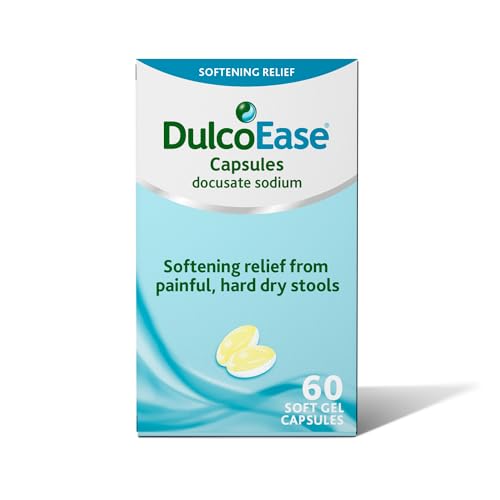Understanding Prostate Health: What You Need to Know
Understanding the Prostate Gland
The prostate is a walnut-sized gland located below the bladder and in front of the rectum. It plays a crucial role in male reproductive health, producing seminal fluid that nourishes and transports sperm. As men age, it’s common to experience changes in prostate health, which can lead to various conditions such as benign prostatic hyperplasia (BPH), prostatitis, and prostate cancer. Recognising the signs and seeking appropriate care is essential for maintaining overall prostate health.
Common Prostate Issues and Symptoms
Men may experience several symptoms indicating potential prostate problems. These can include frequent urination, difficulties starting or stopping urination, weak or interrupted urine flow, and painful urination. Noticing blood in urine or semen, as well as pelvic discomfort, can also signal the need for a consultation. If you experience any of these issues, it’s advisable to consult a healthcare provider for proper evaluation and advice.
Types of Prostate Medications: A Complete Overview
Alpha-Blockers
Alpha-blockers are a common type of medication used to treat symptoms of BPH. They work by relaxing the muscles in the bladder and prostate, making it easier to urinate. These medications can provide quick relief from urinary symptoms without affecting prostate size. Common examples include tamsulosin and alfuzosin.
5-Alpha Reductase Inhibitors
5-alpha reductase inhibitors lower hormone levels that cause prostate growth, making them effective for reducing prostate size over time. Finasteride and dutasteride are popular options in this category. While they may take several months to show effectiveness, they can provide significant long-term benefits by decreasing the risk of urinary complications.
Antibiotics
For cases of prostatitis, particularly bacterial prostatitis, antibiotics are often prescribed. These medications target the specific bacteria causing the infection, alleviating symptoms such as pain and inflammation. Completing the full course of antibiotics is crucial for efficacy.
Hormonal Therapies and Other Treatments
In more severe cases, particularly those involving prostate cancer, hormone therapies may be employed to block the hormones that fuel cancer growth. Additionally, non-medication treatments like surgery or radiation therapy might be recommended based on the specific condition and its severity.
How to Choose the Right Prostate Medication for You
Consulting a Healthcare Professional
The first step in selecting the right medication is to consult with a healthcare professional who will assess your symptoms, medical history, and overall health. They can determine which type of medication is most suitable for your specific condition, ensuring a tailored approach to treatment.
Considering Side Effects
Different medications come with varying side effects, which can influence your choice. For example, while alpha-blockers may cause dizziness or fatigue, 5-alpha reductase inhibitors can lead to sexual side effects. Discussing potential side effects with your doctor can help mitigate any concerns and find a balance between effectiveness and tolerability.
Monitoring Progress and Adjustments
After starting a medication, keeping track of your response is vital. Regular follow-ups with your healthcare provider can help assess the effectiveness of the chosen treatment and allow adjustments if needed, ensuring that you receive optimal care.
Effective Usage Tips for Prostate Medications
Consistency is Key
For medications to be effective, consistency in taking them as prescribed is essential. Whether it’s daily or once a week, establishing a routine can help ensure you don’t miss doses and allows the medication to reach its maximum effectiveness.
Lifestyle Modifications
In conjunction with medications, adopting healthy lifestyle changes can significantly improve prostate health. We recommend a balanced diet rich in fruits, vegetables, and whole grains while reducing the intake of saturated fats and processed foods. Staying physically active and maintaining a healthy weight also contribute positively to managing prostate health.
Hydration and Urinary Health
Staying well-hydrated is crucial, but consider timing your fluid intake to minimise nighttime urination disturbances. Avoiding caffeine and alcohol can also help reduce urgency and frequency of urination.
Frequently Asked Questions About Prostate Health and Medications
How are prostate health issues diagnosed?
Diagnosis usually involves a combination of a physical examination, urinalysis, and possibly imaging tests. Your doctor may perform a digital rectal exam (DRE) to assess the prostate size and texture, while blood tests can check for prostate-specific antigen (PSA) levels.
What should I do if I experience side effects?
If you notice any adverse effects from your medication, it’s crucial to communicate with your healthcare provider immediately. They can assess whether these effects warrant a dosage adjustment or a switch to an alternative treatment.
How often should I see my healthcare provider for prostate health?
We suggest routine check-ups annually, or more frequently if you experience symptoms or changes in your condition. Regular monitoring is vital to keeping track of your prostate health and adjusting treatment as needed.
























